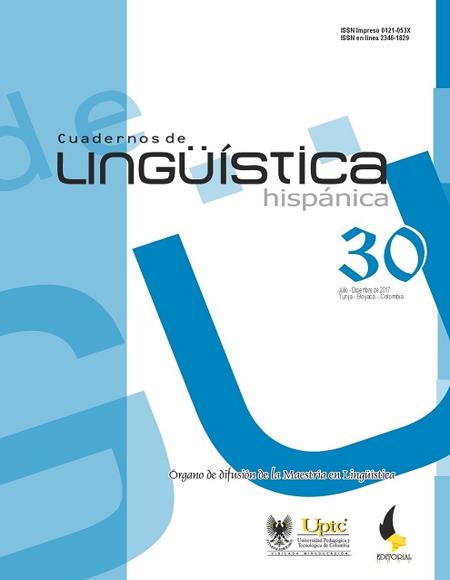Speech in the Wayúu Culture

Abstract
The main manifestations of culture, such as: myths, tales, chants, wisdom and values are all expressed through language. The wayúu culture has its own system of norms that is applied by a single character, named pütchipü’üi. This character, whose origins are found in the mythical world of the wayúu culture, is responsible for the proper and reliable use of words in his society; a symbol of perlocutionary nature for the wayúu, especially when dealing with conflictive situations. The means in which the word is materialized is the wayúunaiki language, a fully alive linguistic system. Our purpose is to highlight this particular aspect of the wayúu culture, which is usually ignored in the national scope of linguistic studies. We also wish to demonstrate that the word is a key pillar in the normative system of the wayúu.Keywords
putchipü’üi, wayúunaiki, perlocutionary nature, normative system, wayúu culture
Author Biography
Nicolás Polo Figueroa
Doctor en Lingüística Hispánica, University Of Iowa.
References
- Guerra, W. (2006). Los conflictos interfamiliares wayúu. Fronesis, 13(1), 40-56.
- Guerra, W. (2002). La disputa y la palabra. La ley en la sociedad wayúu. Bogotá: Mincultura.
- Guzmán, F. (1997). Venganzas de sangre entre los wayúu frente al derecho penal colombiano. Revista del Dpto de Derecho y antropología, 9(1/2). Bogotá: Biblioteca de la Universidad de los Andes.
- López-Hernández, M. (2013). El palabrero como restaurador de paz (pastor del respeto). La palabra reedificada día a día. El "palabrero", 6(2).
- Mansen, R., y Captain, D. (2000). El idioma Guajiro. En Gonzáles, M., y Rodríguez, M. (comps.), Lenguas indígenas de Colombia. Una visión descriptiva. Bogotá: Instituto Caro y Cuervo.
- Mejía, P. (2011). Situación sociolingüística del wayúunaiki. (Tesis de maestría). Universidad Nacional de Colombia, Bogotá, Colombia.
- Navarro, H. (2014). El léxico etnobiológico en lengua mapuche. Cuadernos de Lingüística Hispánica, (23), 13-28. doi: https://doi.org/10.19053/0121053X.2334 DOI: https://doi.org/10.19053/0121053X.2334
- Ojeda, G. (2013). Plan especial de salvaguardia del sistema normativo wayúu, aplicado por el palabrero. Maicao: Junta Mayor de palabreros.
- Polo, N. (2015). Materiales de la investigación. USAM-II-DESA-2015-10. Santa Marta: Universidad Sergio Arboleda.
- Polo, N. (2015b). La cultura y el sistema de normas Wayuu. Nuevo Derecho, 11(17), 65-78. Recuperado de http://revistas.iue.edu.co/index.php/nuevoderecho/article/view /395 DOI: https://doi.org/10.25057/2500672X.395
- Salcedo, A. (2013). La palabra de Juan Sierra, palabrero wayúu. Recuperado de www.soho.co/especial/articulo/como-vive-un-wayúu/278
- Searle, J. (1980). Actos de habla. Madrid: Editorial Cátedra.